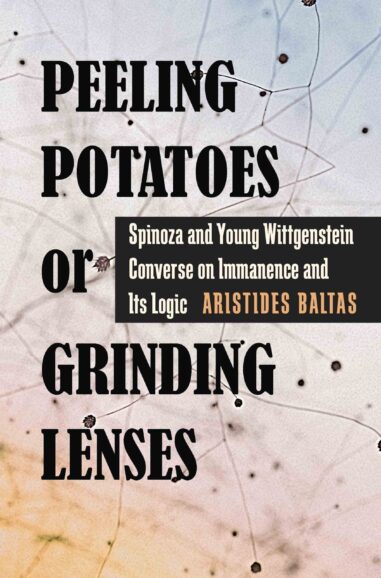
Hardcover $60.00
Also available in Paperback
Request Exam or Desk Copy. Request Review Copy
Peeling Potatoes or Grinding Lenses
Spinoza and Young Wittgenstein Converse on Immanence and Its Logic
Aristides Baltas has a well-deserved reputation for eloquence, erudition, and keen philosophical insight. Peeling Potatoes or Grinding Lenses will do nothing but enhance this reputation. Baltas argues the initially somewhat implausible claim that there is a strong and meaningful structural analogy between the positions of Spinoza and Wittgenstein, which Baltas calls radical immanence, to the effect that there is no philosophical viewpoint outside of the world and language and thought. It is fascinating to watch Baltas carefully, precisely, and in loving detail erect his argument from the historical texts and then defend it in his inimitable elegant fashion. This is a book to dwell in with enormous rewards. I recommend it wholeheartedly.

